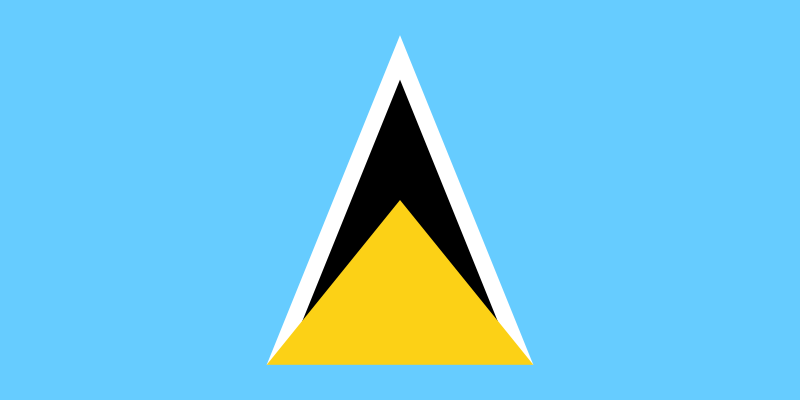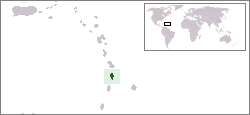 Saint Lucia (pronounced /seɪnt ˈluːʃə/; French: Sainte-Lucie) is an island country in the eastern Caribbean Sea on the boundary with the Atlantic Ocean. Part of the Lesser Antilles, it is located north/northeast of the islands of Saint Vincent and the Grenadines, northwest of Barbados and south of Martinique.
Saint Lucia (pronounced /seɪnt ˈluːʃə/; French: Sainte-Lucie) is an island country in the eastern Caribbean Sea on the boundary with the Atlantic Ocean. Part of the Lesser Antilles, it is located north/northeast of the islands of Saint Vincent and the Grenadines, northwest of Barbados and south of Martinique.
It covers a land area of 620 km2 (238 sq mi) and has an estimated population of 160,000. Its capital is Castries.
The island nation has been the home of two Nobel laureates, Arthur Lewis and Derek Walcott. It is the nation with the second most such honorees per capita after Faroe Islands.
One of the Windward Islands, it was named for Saint Lucy of Syracuse by the French, the first European colonizers. They signed a treaty with the native Carib peoples in 1660. England took control of the island from 1663 to 1667; in ensuing years, it was at war with France 14 times and rule of the island changed frequently (7 times French and British each).
In 1814, the British took definitive control of the island. Because it switched so often between British and French control, Saint Lucia was also known as the “Helen of the West Indies.”
Saint Lucia has a legal system based on British common law. The judiciary is independent and conducts generally fair public trials. The financial sector has weathered the global financial crisis, but the recession has hurt tourism.
Representative government came about in 1924 (with universal adult suffrage from 1953). From 1958 to 1962 the island was a member of the Federation of the West Indies.
Finally, on February 22, 1979, Saint Lucia became an independent state of the Commonwealth of Nations. The island nation celebrates this every year with a public holiday. It is also a member of La Francophonie.

Notes from Wikipedia








